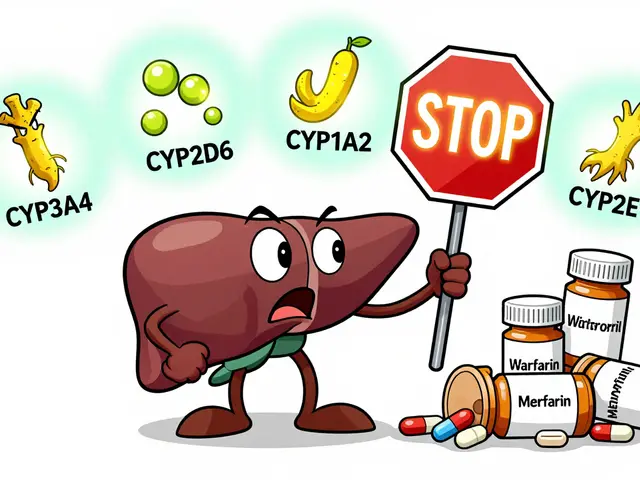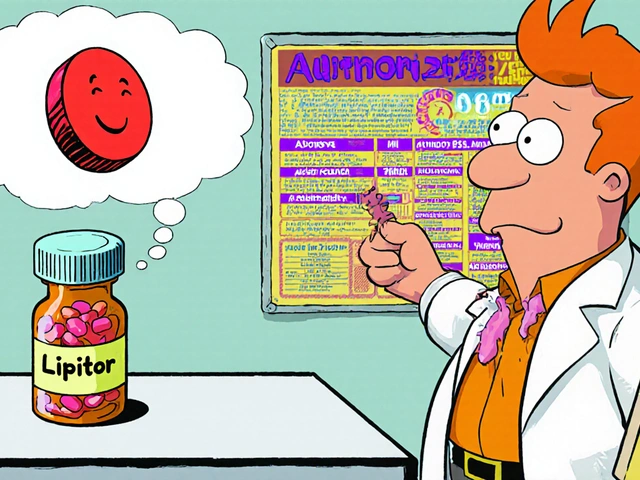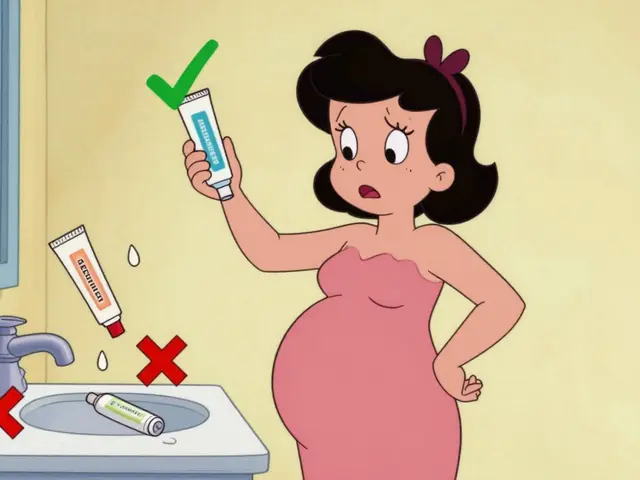Liver damage: what to watch for and what to do
Your liver works nonstop — filtering blood, making bile, storing energy, and breaking down drugs. When it gets hurt, symptoms can be subtle at first. Knowing common causes, early signs, and simple steps to protect your liver helps you catch problems early and avoid serious damage.
How to spot liver trouble fast
Look for these concrete warning signs: yellowing of the skin or eyes (jaundice), dark urine, pale or clay-colored stool, unexplained tiredness, persistent nausea, upper-right belly pain, intense itching, easy bruising, or sudden confusion and sleepiness. If you see jaundice, heavy vomiting, bleeding, or mental confusion, get emergency care — those can mean acute liver failure.
Routine symptoms like fatigue or mild stomach discomfort may still matter if they persist for weeks. A quick blood test (liver function tests: ALT, AST, ALP, GGT, bilirubin) will show if the liver is stressed. Your doctor may also check INR, albumin, do an ultrasound, or recommend FibroScan to measure scarring.
Main causes of liver damage
Alcohol overuse is a common, preventable cause. Nonalcoholic fatty liver disease (NAFLD) is rising with obesity and diabetes — carrying fat in liver cells can progress to inflammation and scarring. Viral hepatitis B and C are infectious causes that can be treated or controlled if diagnosed.
Medications and supplements are frequent culprits. Acetaminophen (paracetamol) can cause severe, fast liver injury after an overdose or when mixed with heavy alcohol. Some prescription antibiotics, statins, anti-seizure drugs, and herbal supplements like kava or high-dose green tea extract have been linked to liver harm. Anabolic steroids and certain performance drugs can also injure the liver.
Toxins, industrial chemicals, and rare autoimmune conditions are other causes. If you start any new drug, check the label and ask about liver risk, especially if you already have liver disease.
Practical steps to protect your liver
Limit alcohol and follow dosing for medicines: don’t exceed the recommended acetaminophen amount and avoid mixing it with alcohol. Maintain a healthy weight, eat a balanced diet, and stay active to lower fatty liver risk. Before taking supplements or online-bought drugs, verify the source and talk to your doctor.
Get tested if you have risk factors: heavy drinking, obesity, diabetes, past blood transfusions, tattoos, or unprotected sex. If tests show liver injury, the first moves are stopping the offending drug, treating infections (antivirals for hepatitis), giving N-acetylcysteine for acetaminophen overdose, and managing complications. Advanced scarring may need specialist care or transplant evaluation.
Watch your symptoms, keep regular check-ups if you have risk factors, and ask your healthcare provider about safe medication choices. Small changes now can prevent major liver problems later.





